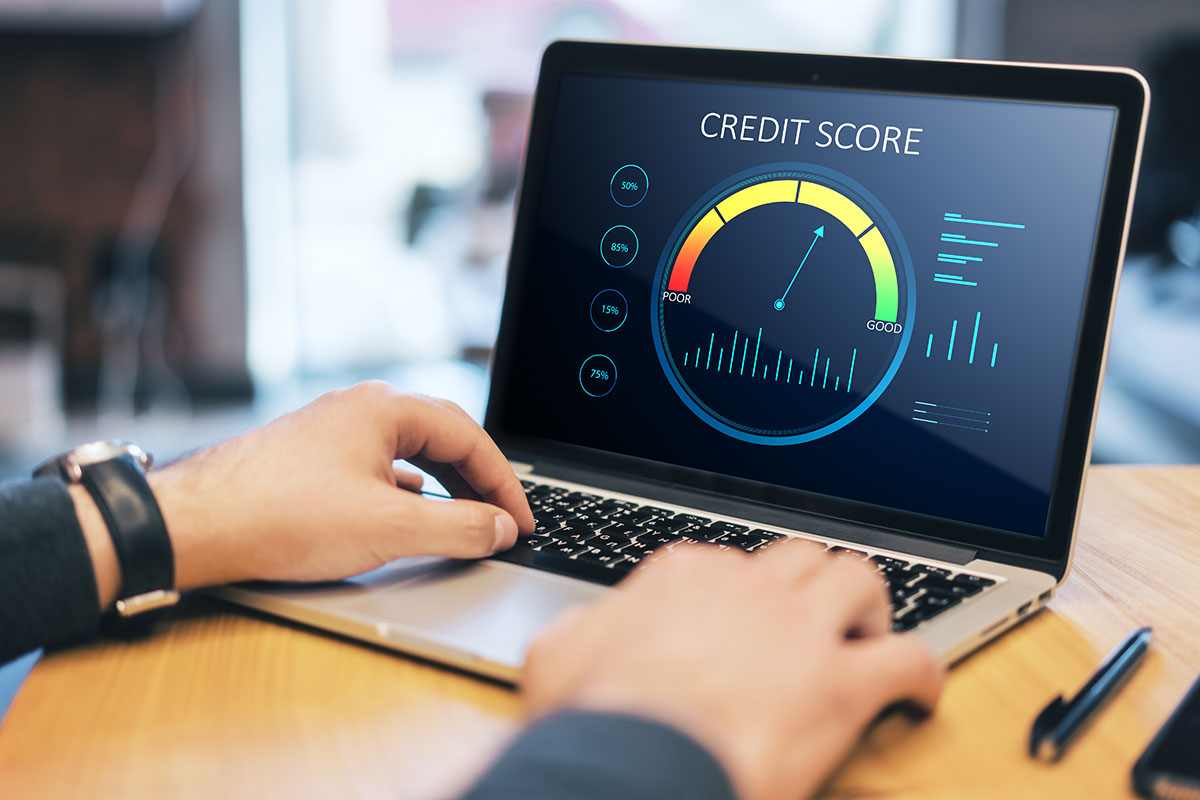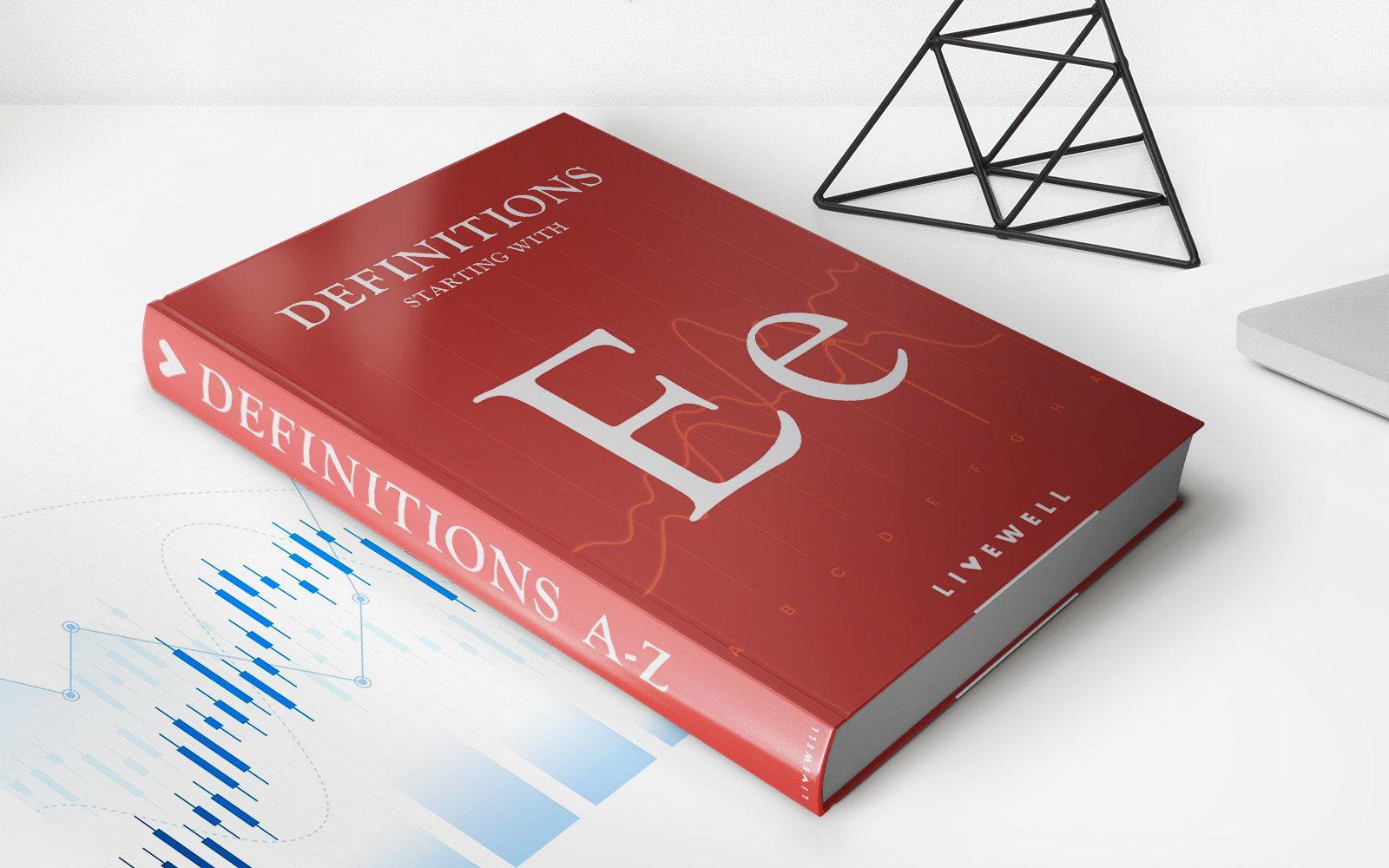

Finance
How To Get A Laptop With Bad Credit
Modified: March 1, 2024
Learn how to finance a laptop even with bad credit. Tips and tricks to get approved for a laptop loan without hassle.
(Many of the links in this article redirect to a specific reviewed product. Your purchase of these products through affiliate links helps to generate commission for LiveWell, at no extra cost. Learn more)
Table of Contents
Introduction
Welcome to the digital age, where having a reliable laptop is essential for work, education, and staying connected. However, if you have bad credit, obtaining a laptop can be a challenge. Financial obstacles, such as past missed payments or a low credit score, can make it difficult for individuals to qualify for traditional financing options.
Fortunately, there are still ways to get a laptop with bad credit. In this article, we will explore various financing options and strategies to help you acquire the laptop you need, regardless of your credit history. Whether you’re a student looking for a laptop for your studies or an entrepreneur in need of a reliable device for your business, we’ve got you covered.
Before diving into the financing options, let’s take a moment to understand what exactly bad credit means. Bad credit typically refers to a low credit score, often resulting from late payments, defaulted loans, or high credit utilization. Lenders consider individuals with bad credit to be a higher risk, making it challenging to secure loans or credit.
However, having bad credit doesn’t mean that you’re completely out of luck when it comes to financing a laptop. There are alternative options available that can help you overcome this obstacle and get the device you need to succeed. Let’s explore these options and find the best solution for you.
Understanding Bad Credit
Before delving into the various financing options, it’s important to have a clear understanding of what bad credit entails.
Bad credit is a term used to describe a low credit score, which is typically the result of a history of late payments, defaulted loans, or high credit utilization. Credit scores are determined by credit reporting agencies, such as Equifax, Experian, and TransUnion, and range from 300 to 850. The lower your credit score, the more difficult it becomes to qualify for loans, credit cards, and other forms of financing.
One of the main factors affecting your credit score is your payment history. Consistently making late payments or missing payments altogether can have a substantial negative impact on your credit score. In addition, excessively using your available credit, maxing out credit cards, or having a high credit utilization ratio can also lower your credit score.
Having bad credit can limit your financial options and make it challenging to qualify for traditional financing. However, it’s important to note that bad credit does not define your financial future. There are steps you can take to improve your credit score and regain your financial footing.
By understanding the factors that contribute to bad credit and taking proactive measures to address them, you can gradually rebuild your creditworthiness. This includes paying bills on time, reducing credit card balances, and addressing any inaccuracies or errors on your credit report.
Now that we have a clearer understanding of what bad credit means, let’s explore the various financing options available for individuals with less-than-ideal credit. These options can help you obtain the laptop you need without relying solely on traditional lenders.
Exploring Laptop Financing Options
When it comes to financing a laptop with bad credit, there are several options to consider. It’s important to explore these alternatives to find the one that best suits your needs and financial situation.
Rent-to-Own Laptops: Rent-to-own agreements allow you to lease a laptop with the option to buy it after a certain period. This option is beneficial for those with bad credit as there is no credit check involved. However, keep in mind that these agreements often come with higher interest rates, so be sure to read the terms and conditions carefully before committing.
In-House Financing from Retailers: Many retailers offer in-house financing options, allowing you to purchase a laptop directly from them and make installment payments over time. While these options may be more lenient with credit requirements, they often come with higher interest rates and fees attached.
Secured Credit Cards for Laptop Purchases: If you have bad credit but are willing to work towards improving it, obtaining a secured credit card can be a viable option. With a secured credit card, you’ll need to provide a security deposit which becomes your credit limit. By using the card responsibly and making timely payments, you can gradually rebuild your credit while making laptop purchases.
Co-Signer Options: If you have someone with a good credit history willing to vouch for you, having a co-signer can increase your chances of getting approved for a laptop loan or financing. The co-signer agrees to take responsibility for the debt if you are unable to make payments, providing added security for the lender.
These are just a few of the financing options available for individuals with bad credit. It’s important to carefully research and compare the terms and conditions, interest rates, and repayment plans associated with each option. Additionally, be cautious of predatory lenders who may take advantage of your financial situation. Working with reputable lenders and seeking advice from financial professionals can help you make informed decisions.
Remember, your credit score doesn’t have to be a barrier to getting the laptop you need. With the right financing option and a commitment to improving your credit, you can overcome your bad credit and access the technology required for work, education, or personal use.
Rent-to-Own Laptops
For individuals with bad credit, rent-to-own agreements can be a viable option for acquiring a laptop. These agreements allow you to lease the laptop with the option to purchase it after a specific period of time.
One of the main advantages of rent-to-own laptops is that they typically do not require a credit check. This can be particularly beneficial for individuals with low credit scores or a history of financial difficulties. Rent-to-own companies focus more on your ability to make regular payments rather than your credit history.
When entering into a rent-to-own agreement, it’s essential to carefully review the terms and conditions. Pay attention to the payment schedule, interest rates, and any additional fees that may be associated with the lease. Some rent-to-own agreements may include higher interest rates compared to traditional financing options, so it’s important to compare different providers and choose the one with reasonable terms.
Keep in mind that while rent-to-own agreements offer flexibility, they often result in higher overall costs compared to purchasing a laptop outright. Before committing to a rent-to-own agreement, consider the total amount you will be paying, including any interest and fees, to evaluate if it aligns with your budget and long-term financial goals.
Additionally, be sure to ask about the condition of the laptop at the end of the lease period. Some agreements may allow you to return the laptop and upgrade to a newer model, while others may require you to make a final payment to own the device. Understanding these details upfront will help you make an informed decision and avoid any surprises.
When considering rent-to-own laptops, it’s crucial to choose a reputable provider. Research customer reviews and ratings, and ensure that the company is trustworthy and transparent in their dealings. Avoid providers with excessive complaints or hidden fees, as this can lead to unpleasant experiences and financial strain.
While rent-to-own laptops can be a convenient solution for acquiring a laptop with bad credit, it’s important to weigh the overall cost and consider other financing options as well. If you have the means to improve your credit score over time, exploring alternative financing options such as secured credit cards or in-house financing may provide more favorable terms.
Remember: Rent-to-own laptops are a temporary solution. If your credit improves in the future, you may be able to qualify for more affordable financing options or purchase a laptop outright. It’s essential to use the rental period wisely, focusing on improving your credit and exploring strategies to boost your financial standing.
In-House Financing from Retailers
Another option to consider when seeking financing for a laptop with bad credit is in-house financing, which is often offered by retailers themselves. In-house financing allows you to purchase the laptop directly from the retailer and make installment payments over time.
One of the advantages of in-house financing is that it may have more flexible credit requirements compared to traditional lenders. Retailers who offer in-house financing understand that not everyone has a perfect credit score and are often willing to work with individuals facing credit challenges.
When exploring in-house financing options, be sure to carefully review the terms and conditions. Pay attention to the interest rates, repayment period, and any additional fees that may be involved. In some cases, in-house financing may come with higher interest rates compared to traditional loans, so it’s important to consider the total cost of financing before making a decision.
Another aspect to consider is the retailer’s reputation and customer service. Research customer reviews and feedback regarding their in-house financing program to ensure that the retailer is transparent and reliable. Avoid retailers who have a history of predatory lending practices or excessive complaints from customers.
It’s important to note that while in-house financing can be a convenient option to obtain a laptop, late or missed payments can still negatively impact your credit score. Therefore, it’s essential to make payments on time and adhere to the agreed-upon repayment plan.
Some retailers may also offer promotional financing options such as zero-interest or deferred interest plans. These plans can be a great way to finance a laptop without incurring additional interest charges if paid within a specific timeframe. However, be sure to understand the terms and conditions associated with these promotional financing offers, as there may be penalties or high interest rates if the balance is not paid in full by the specified date.
Before deciding on in-house financing, consider your budget and evaluate if the monthly payments fit comfortably within your financial means. It’s crucial to choose a payment plan that allows you to meet other financial obligations without causing undue stress.
Remember: In-house financing is an option worth exploring for individuals with bad credit, as it provides the opportunity to obtain a laptop while working towards improving your credit over time. However, be cautious of high interest rates and fees, and choose a reputable retailer that offers fair and transparent financing terms.
Secured Credit Cards for Laptop Purchases
If you have bad credit but are determined to improve your financial standing, obtaining a secured credit card can be a smart option for financing a laptop. A secured credit card works by requiring you to provide a security deposit, which then becomes your credit limit.
The security deposit acts as collateral for the credit card issuer, reducing their risk in extending credit to individuals with bad credit. This makes secured credit cards more attainable, even for those with a low credit score or no credit history.
Secured credit cards function similarly to traditional credit cards, allowing you to make purchases and build your credit history. The key difference is that you are required to provide a deposit upfront, which serves as a form of security for the lender.
When using a secured credit card to finance a laptop purchase, make sure to select a card with a credit limit that accommodates the cost of the laptop you desire. It’s important to choose a reputable credit card issuer and read all terms and conditions carefully, including any annual fees or interest rates associated with the card.
By utilizing a secured credit card responsibly, you can establish or rebuild your credit history. Make sure to make timely payments each month and keep your credit utilization low, ideally below 30% of your credit limit. Over time, as you demonstrate responsible credit management, you may have the opportunity to upgrade to an unsecured credit card with a higher credit limit and better terms.
Before applying for a secured credit card, it’s essential to verify that the card issuer reports your payment activity to the major credit bureaus. This will ensure that your responsible credit behavior is reflected in your credit report, helping raise your credit score over time.
While secured credit cards can be a viable option for financing a laptop, it’s important to note that they require discipline and responsible credit management. Make sure to pay your bill on time and in full every month to avoid incurring interest charges. Defaulting on payments or maxing out your secured credit card can further damage your credit, defeating the purpose of building credit in the first place.
Secured credit cards offer individuals with bad credit the opportunity to finance a laptop while simultaneously improving their credit history. However, it’s crucial to approach this option with caution and diligence to ensure positive results in the long run.
Co-Signer Options
If you have bad credit and are struggling to secure financing for a laptop, having a co-signer can significantly increase your chances of approval. A co-signer is an individual with a good credit history and income who agrees to take on the responsibility of making payments if you are unable to do so.
When applying for a loan or financing with a co-signer, the lender will consider both your creditworthiness and the creditworthiness of your co-signer. Having a co-signer with a strong credit history can provide additional assurance for the lender, making them more willing to offer favorable loan terms.
It’s important to choose a co-signer who is not only willing but also financially capable of taking on the responsibility. This includes having a stable income and a good credit score. The co-signer should understand the potential risks involved and be willing to step in and make payments if you’re unable to meet your obligations.
While having a co-signer can be a valuable option for financing a laptop with bad credit, it’s essential to approach this arrangement with caution. Remember that both you and the co-signer are equally responsible for the debt. Any late or missed payments can negatively impact both of your credit scores and strain your relationship with the co-signer.
Prior to involving a co-signer, it’s crucial to have an open and honest discussion with them about your financial situation and the expectations involved. Clearly outline the terms of the loan or financing agreement and discuss how you plan to manage the monthly payments. Transparency and effective communication are vital to ensure a successful co-signer arrangement.
Furthermore, using the opportunity to finance a laptop through a co-signer should also serve as a catalyst for taking steps to improve your credit. Work towards building a positive credit history, making timely payments, and reducing your overall debt. By doing so, you will not only fulfill your responsibilities to the co-signer but also improve your chances of securing future financing without the need for a co-signer.
Remember, involving a co-signer is a serious commitment that shouldn’t be taken lightly. It’s crucial to maintain open communication, handle the finances responsibly, and work towards improving your credit to ultimately regain your financial independence.
Improving Your Credit Score
If you have bad credit, it’s important to take proactive steps to improve your credit score. By doing so, you can increase your chances of obtaining better financing options in the future and regain control of your financial health.
1. Pay Your Bills on Time: Late or missed payments can have a significant negative impact on your credit score. Make it a priority to pay your bills, including credit card payments, loans, and utilities, on or before their due dates.
2. Reduce Your Debt: High credit card balances can negatively impact your credit utilization ratio, which is the ratio of your credit card balances to your credit limit. Aim to keep your credit utilization below 30% to improve your credit score. Develop a plan to pay off your debts strategically, starting with high-interest debt.
3. Check Your Credit Report: Regularly review your credit report to ensure its accuracy. Check for any errors, fraudulent accounts, or discrepancies that may be negatively affecting your credit score. Dispute any incorrect information and work on resolving any outstanding issues.
4. Build a Positive Credit History: If you have limited credit history, consider opening a secured credit card, as mentioned earlier, to start building a positive credit history. Make small purchases and pay them off on time to demonstrate responsible credit management.
5. Diversify Your Credit Mix: Having a mix of different types of credit, such as credit cards, installment loans, and mortgages, can positively impact your credit score. However, only pursue new types of credit if it aligns with your financial goals.
6. Avoid Opening Multiple New Accounts: While having a diverse credit mix is beneficial, be cautious about opening multiple new accounts in a short period. This can indicate a higher risk and potentially lower your credit score.
7. Practice Patience: Improving your credit score takes time and consistent responsible financial behavior. Be patient, remain committed to your financial goals, and avoid quick-fix schemes that promise to repair your credit overnight.
Improving your credit score requires discipline, patience, and responsible financial habits. By implementing these strategies, you can gradually rebuild your creditworthiness and gain access to better financing options in the future.
Remember, improving your credit score is a long-term journey. It’s important to stay focused on your goals, make informed financial decisions, and seek guidance from financial professionals if needed.
Conclusion
Obtaining a laptop with bad credit may seem like a daunting task, but it’s not impossible. By exploring alternative financing options and implementing strategies to improve your credit, you can still acquire the laptop you need to succeed in today’s digital world.
Whether through rent-to-own agreements, in-house financing, secured credit cards, or co-signer options, there are various paths you can take to finance a laptop despite your credit challenges. It’s important to carefully evaluate the terms and conditions of each option, comparing interest rates, repayment plans, and any additional fees that may be associated with them.
While seeking financing for a laptop, it’s also crucial to use the opportunity to improve your credit score. By making timely payments, reducing your debt, and building a positive credit history, you can work towards regaining your financial stability and qualifying for better financing options in the future.
Remember to approach each financing option with caution and fully understand the responsibilities involved. Whether you choose to enter into a rent-to-own agreement, secure in-house financing, utilize a secured credit card, or involve a co-signer, communication, and responsible financial behavior are key to success.
Lastly, be patient with yourself and your credit improvement journey. Rebuilding your credit takes time and consistent effort. Stay committed to your financial goals, seek guidance when needed, and maintain a positive mindset.
Remember, bad credit does not define your financial future. By exploring these financing options and actively working towards improving your credit, you can overcome financial obstacles and acquire the laptop you need to thrive in today’s digital age.














